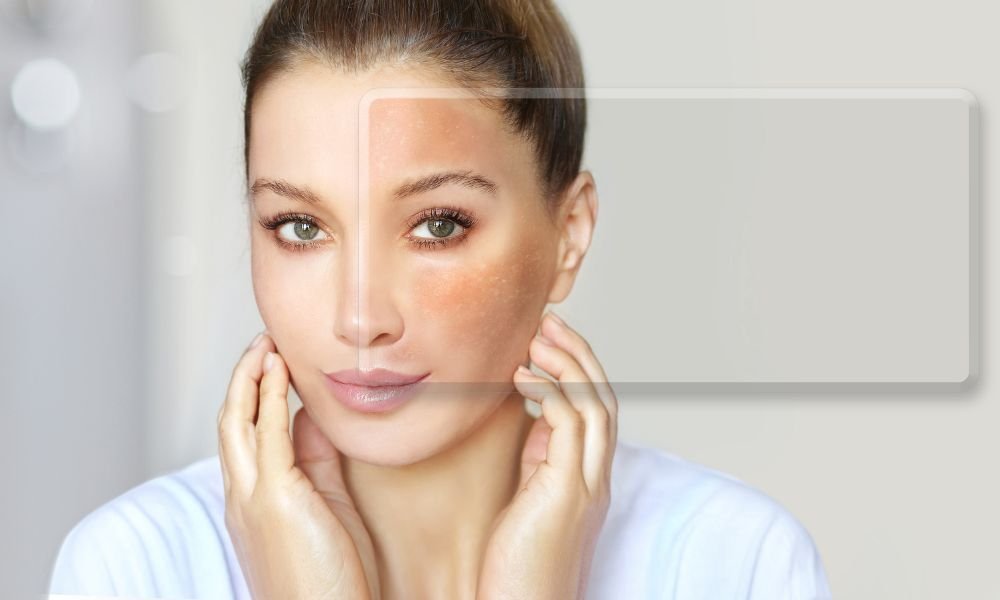Pigmentation Treatment In Dubai, those pesky dark spots and uneven skin tone, can be a frustrating and confidence-dampening issue. But fear not! With the advancements in skincare technology, there are now numerous effective treatments available to help you achieve a more radiant and even complexion. In this article, we’ll explore some of the most popular and promising pigmentation treatments, helping you understand your options and make informed decisions for your skin.

Understanding Pigmentation
Before diving into treatments, let’s briefly discuss what pigmentation is. It occurs when an excess of melanin, the pigment responsible for skin color, is produced in certain areas. This can result from various factors, including sun exposure, hormonal changes, inflammation, and underlying medical conditions.
Treatment Options
The ideal treatment for pigmentation depends on several factors, including the type of pigmentation, skin type, and desired outcome. Here are some of the most effective options:
Topical Treatments
- Hydroquinone: This is a potent ingredient that inhibits melanin production. It’s often used in combination with other treatments for optimal results. However, it can cause skin irritation and has potential long-term side effects, so it’s typically used under medical supervision.
- Retinoids: Derived from vitamin A, retinoids accelerate skin cell turnover, helping to fade dark spots. They also improve skin texture and tone. However, they can cause dryness and irritation, so gradual introduction is essential.
- Vitamin C: A powerful antioxidant, vitamin C helps to brighten the skin, reduce inflammation, and protect against future pigmentation. It works synergistically with other treatments.
- Azelaic acid: This gentle yet effective ingredient has both exfoliating and anti-inflammatory properties, making it suitable for sensitive skin. It helps to reduce pigmentation and improve overall skin texture.
- Kojic acid: Derived from mushrooms, kojic acid inhibits melanin production and has brightening effects. It’s often used in combination with other ingredients.
Chemical Peels
Chemical peels involve applying a chemical solution to the skin to exfoliate and remove damaged layers. They can be superficial, medium, or deep, depending on the desired level of skin renewal. Chemical peels can effectively treat pigmentation, but it’s crucial to choose the right type for your skin and consult with a qualified dermatologist.
Laser Treatments
Laser treatments use concentrated beams of light to target and break down pigmentation. Several types of lasers are available, including:
Microdermabrasion
This exfoliation technique uses a diamond-tipped wand to remove the outer layer of dead skin cells, revealing fresher, more even skin. Microdermabrasion can help to improve mild pigmentation but may not be as effective for deeper discoloration.
Medical Treatments
In some cases, pigmentation may be caused by underlying medical conditions that require specific treatments. For example, hormonal imbalances or medications can contribute to pigmentation, and addressing these issues may help improve skin tone.
Sun Protection: The Cornerstone of Pigmentation Prevention
Regardless of the treatment you choose, protecting your skin from the sun is crucial for preventing new pigmentation and maintaining your results. Always use a broad-spectrum sunscreen with an SPF of 30 or higher and wear protective clothing when spending time outdoors.
Conclusion
Achieving a clear and even complexion is a common goal, and with the variety of pigmentation treatments available, there’s hope for everyone. However, it’s essential to consult with a dermatologist to determine the best approach for your specific skin concerns. Remember that consistency is key, and combining treatments with proper skincare and sun protection will maximize your results. With patience and dedication, you can transform your skin and boost your confidence.

